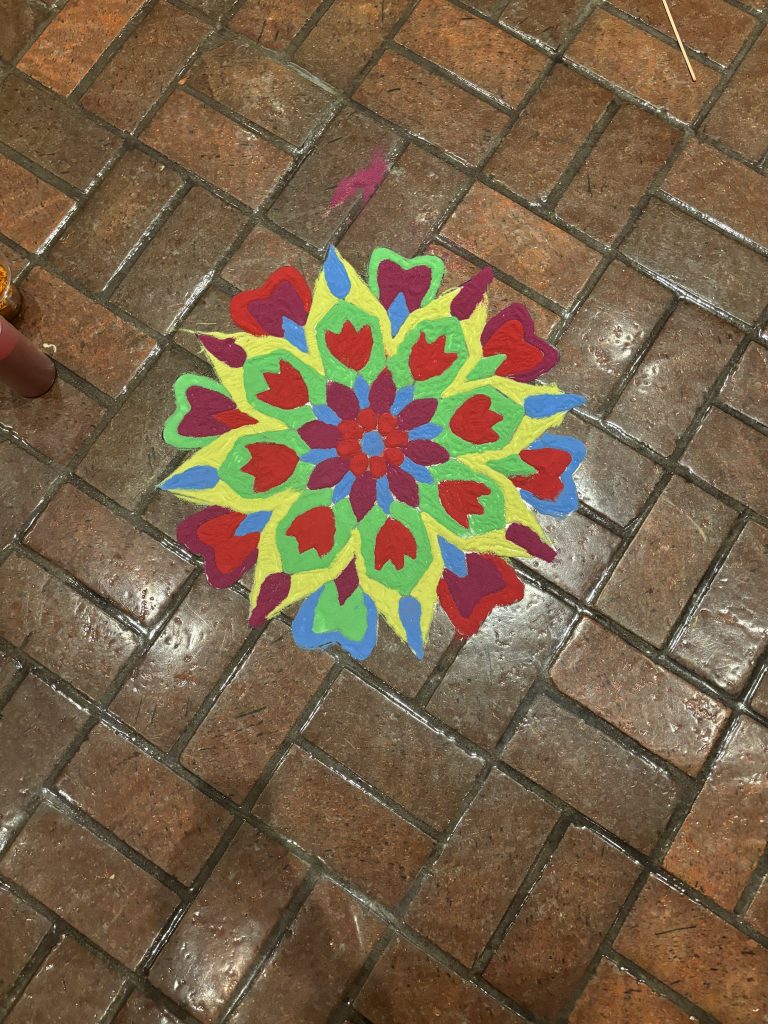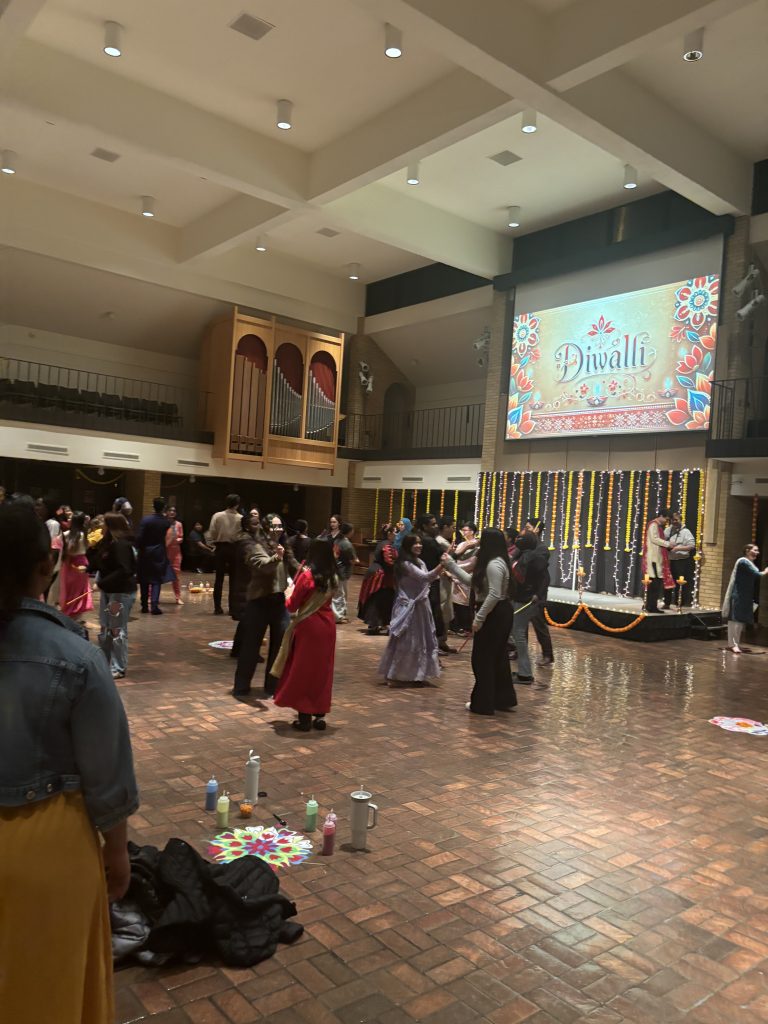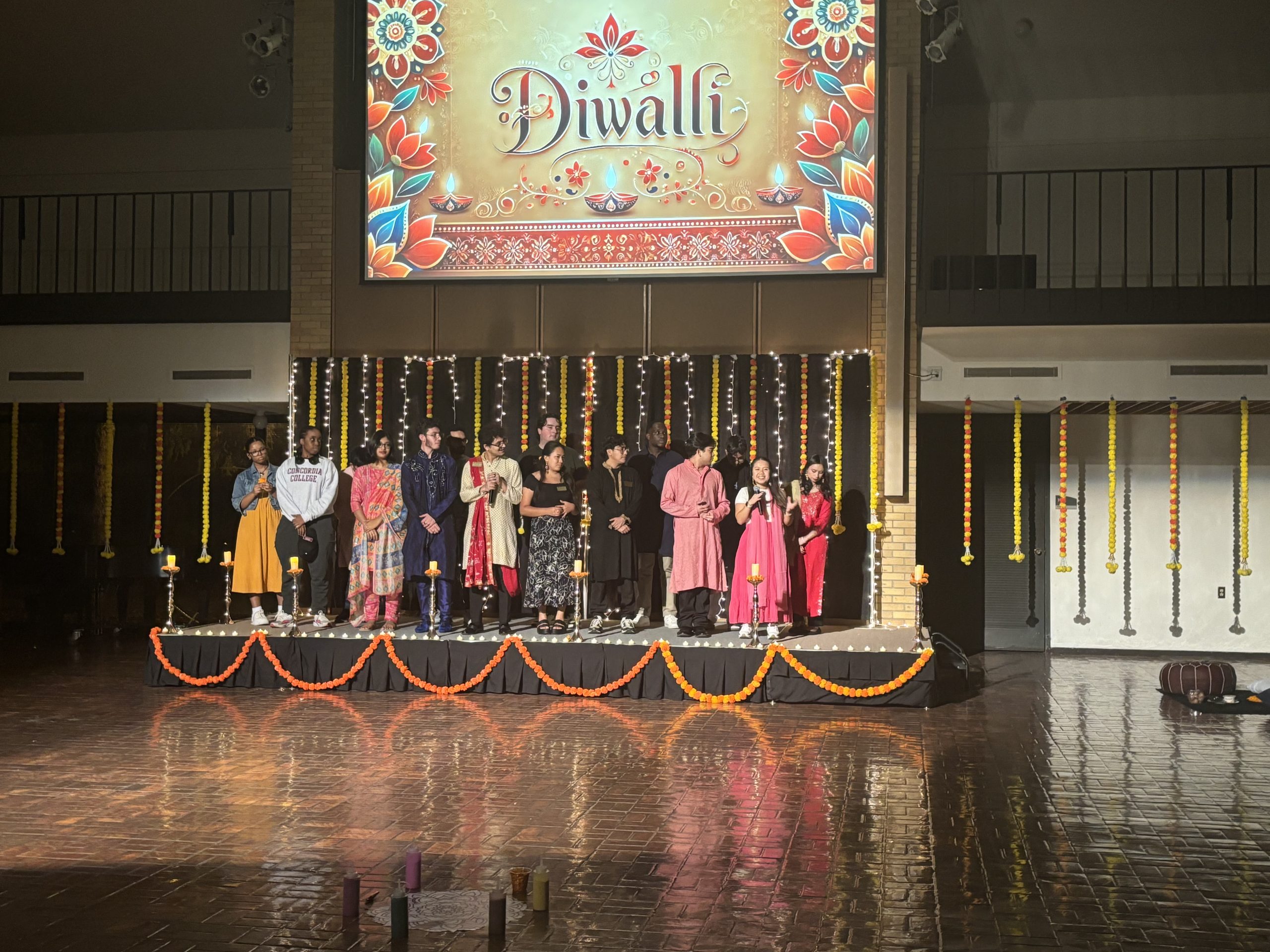The Diversity, Equity and Inclusion Commission (DEIC) partnered with the Asian Student Organization (ASO) and the International Student Organization (ISO) to host Concordia’s first ever Diwali Festival of Lights this past Friday, Nov. 8.
Known as the Hindu festival of lights, it symbolizes the victory of good over evil, and is celebrated for five to six days. Diwali is a time when many families, friends and communities come together to celebrate, so the student organizers focused their event on community and bringing people together.
“We’re just trying to bring out some of the educational and practical things to try and just have fun and build community,” said senior Siam Shimul. “The event mainly, is a social event, so that’s why you’ll see different things happening.”

Some of the traditions exemplified throughout the night were rangoli, an ancient Indian art form that uses intricate patterns and colorful materials like rice flour, sand and flower petals. Families will decorate rangolis for their doorsteps to welcome in positivity to those visiting.
Another tradition presented at the event were diyas, which are small clay lamps which are lit to directly symbolize the triumph of light over darkness, another aspect of celebrating Diwali. Diyas are also believed to ward off feelings of darkness and negativity for those who light them, and similarly to rangolis, are believed to welcome Lakshmi, the Hindu goddess of wealth and prosperity.
The most popular activity of the night was henna. Made from the henna plant, it is a natural dye that has been used to create designs on skin and are most commonly seen at celebrations such as festivals like Diwali. On top of being a popular choice for an added touch of elegance, henna also signifies joy, beauty and good luck for people.
The final main tradition showcased was called Bhaitika.
“During Bhai Tika, we put tika on our brothers head, and we give them blessings as we wish for their long life and good health,” said senior Anjani Bhujel. One of Concordia’s own religion professors, Dr. Anne Mocko, was leading attendees in the ceremony during the event alongside all the other festivities.
“We want to make sure we embrace it all with our organization,” said ASO member Rachel Huynh. “We knew that it was never done before, especially within the local area.”

Huynh hopes that events like this allow space for people to be more open and learn about other celebrations and traditions through things such as food, which was also provided at the event.
“I think that’s really a big thing with ASO, especially with Diwali. It’s a big community event with everyone walking around, mingling and everything,” said Huynh.
The hope for this event is that as it continues through the years, it can become an even larger celebration.
In addition to the Diwali festival of lights celebration, these student organizations are hoping to bring other cultures and traditions to Concordia’s campus, such as a celebration for the Lunar New Year.
“We want to make sure that we have events that not only cater to a specific group of Asians, but include all of it,” said Huynh.
The event will continue to be run under the religious and hospitality committee in the Inclusion, Diversity, Equity and Opportunity Office here at Concordia, and the hope is to bring this event back every year from now on.

